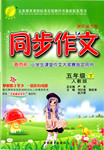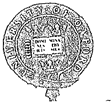题目内容
10.A recent report found 46% of parents agreed that their child knew more about the Internet than they did.And now new research shows parents are turning to their children for lessons in technology.The new study of around 1,000parents showed that 67% of parents have asked their teenager children for technology-related advice.44% have asked their teenager for help using the Internet,and 41% have received teen advice about how to use the TV or home entertainment system.
Ahad Surooprajally,a father of five children,says his children help him with technology in the home."They've grown up surrounded by technology,"he explains."We have four computers and four iPads in our house.If I want to know something technical they're the ones I go to."
He says his nine-year-old son Habeeb is the only person in the house who really understands the TV.So he tells Habeeb which film he wants to watch and Habeeb connects his mobile phone to the TV."You teach your kids everyday life lessons,but the tables are turned when it comes to technology,"says Ahad.
As well as learning how to use technology properly,there is another advantage of parents asking their children to help them understand the digital world,They may be able to get a better understanding of what their kids are doing online.
Will Gardner of the charity Childnet International says,"We have to continuously encourage parents to find out more about what their children are doing on line.If the kids are using a social networking site,get them to show you around it if you are not using it already."
51.What do we know about the new study?A
A.Over two-thirds of parents turned to their teenagers on tech matters.
B.Most teenagers know more about the Internet than their parents.
C.About half of the parents have no idea how to use a computer.
D.Few parents trust their children to give them advice.
52.What does the underlined part"the tables are turned"probably mean?C
A.The duty is carried out.B.The pleasure will increase.
C.The situation is changed.D.The difficulty becomes less.
53.Will Gardner seems to suggest that parents shouldB.
A.try to learn how to make friends online
B.keep an eye on children's online safety
C.encourage children to use social networking sites
D.ask children to teach them how to use computers
54.Which of the following can be the best title for the text?D
A.Internet:Open to our kids too early
B.Technology:Challenge for everyone
C.Parents:Confused by new technology
D.Children:Parents'technology advisors.
分析 本文报道了一项调查报告,当今三分之二以上的父母都向自己的孩子请教过科技方面的问题,孩子们已逐渐成为了父母的技术顾问的现实.
解答 ACBD
51.答案 A 细节理解题.根据第二段的67% of parents have asked their teenage children for technology-related advice可知新研究表明超过三分之二的父母在教书的问题上会请教他们的孩子.故答案为A
52.答案 C 句意理解题.联系全文主旨可知,Ahad的意思是:父母在日常生活方面能够指导孩子,但是在技术方面,情况就不同了.turn the tables的意思"情况发生了变化、由弱转强".故答案为C
53.答案 B 推理判断题.由最后一段可知,Will Gardner鼓励家长关注孩子在网上做些什么,也就是建议家长要关注孩子们上网安全的问题.故答案为B
54.答案 D 标题归纳题.本文报道了一项调查报告,当今三分之二以上的父母都向自己的孩子请教过科技方面的问题.孩子们已逐渐成为了父母的技术顾问.故答案为D
点评 1、要想做好科普英语阅读理解题,同学们就要注意平时多读科普知识类文章,学习科普知识,积累常见的科普词汇,从根本上提高科普英语的阅读能力.
2、要熟悉科普类文章的结构特点.科普类文章一般由标题(Head line),导语(Introduction),背景(Back ground),主体(Main body)和结尾(End)五部分构成.标题是文章中心思想高度而又精辟的概括,但根据历年的高考情况来看,这类阅读理解材料一般不给标题,而要同学们选择标题.导语一般位于整篇文章的首段.背景交待一个事实的起因.主体则对导语概括的事实进行详细叙述,这一部分命题往往最多,因此,阅读时,同学们要把这部分作为重点.结尾往往也是中心思想的概括,并与导语相呼应,命题者常在此要设计一道推理判断题.
3、在进行推理判断时,同学们一定要以阅读材料所提供的科学事实为依据,同时所得出的结论还应符合基本的科普常识.

 春雨教育同步作文系列答案
春雨教育同步作文系列答案| A. | in memory of | B. | in need of | C. | in honour of | D. | in support of |
| A. | /; the | B. | the; an | C. | /; an | D. | the; the |
| A. | in case | B. | so that | C. | as long as | D. | as soon as |
 Settling in to life at Oxford
Settling in to life at Oxford 